Harold Shepley & Associates On PA Live 02/20/23
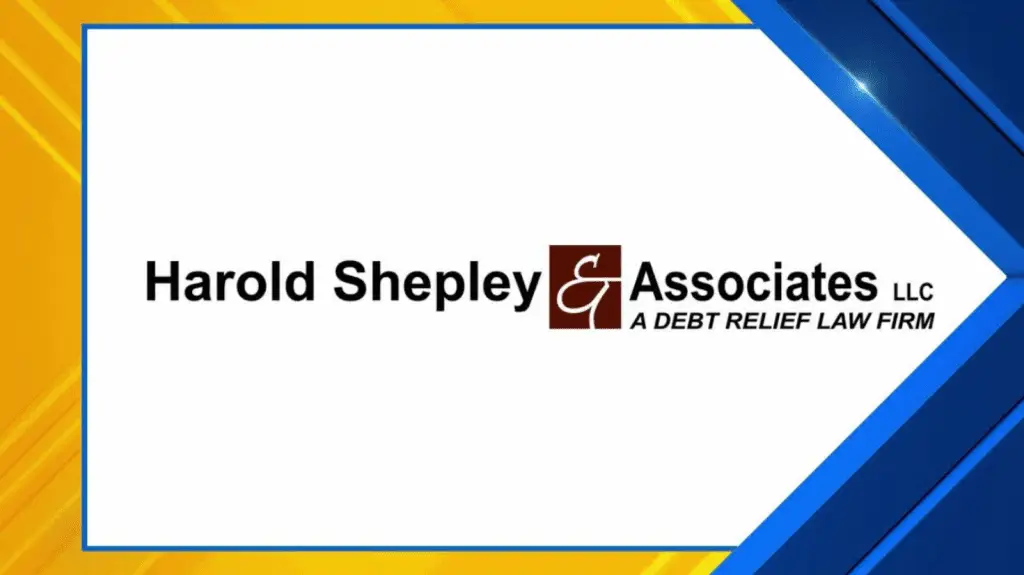
Harold Shepley & Associates On PA Live 12/23/23

Harold Shepley & Associates on PA live! 12.09.2022 – Holiday Giving
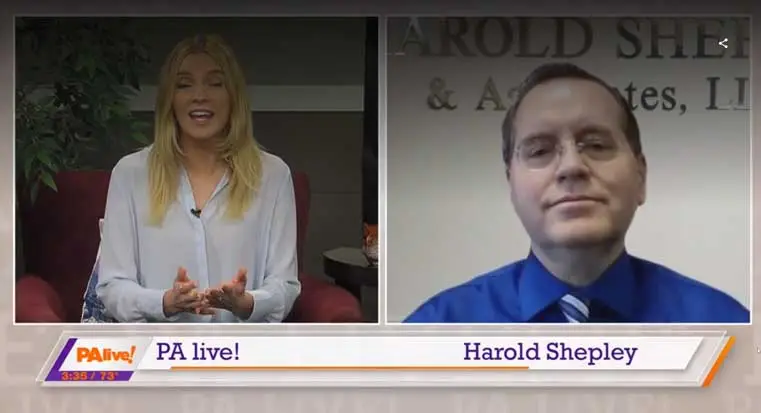
Harold Shepley & Associates on PA live! 11.08.2022 – Numbers, Inflation, and More!

Harold Shepley & Associates on PA live! 9.12.2022 – Heading Back To School

Harold Shepley & Associates on PA live! 7.29.2022 – Financial debt is also sometimes good!

Harold Shepley & Associates on PA live 6.17.2022 – Struggling with Debt

Harold Shepley & Associates on PA live! 06.27.22 Filing for Bankruptcy – Expert Advice
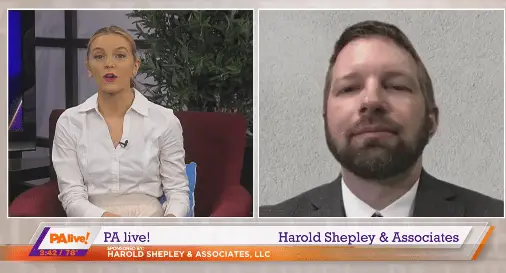
Harold Shepley & Associates on PA live! 4.25.2022 – Bankruptcy
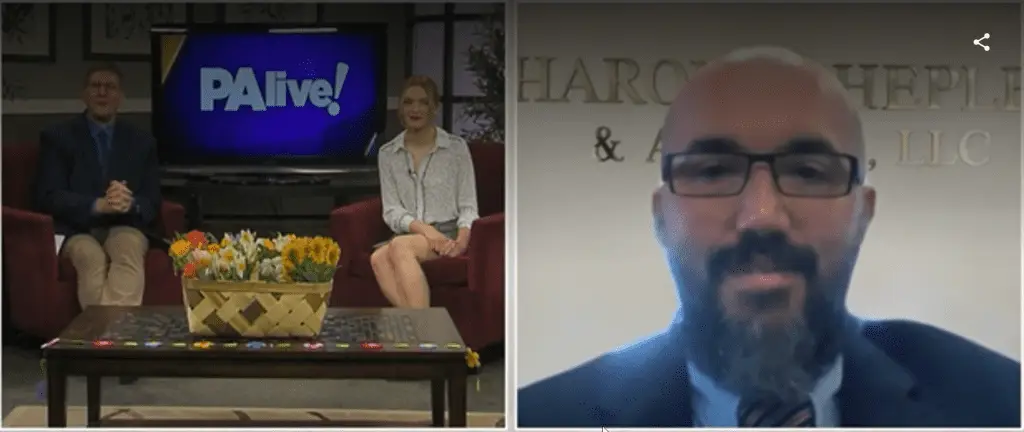
Harold Shepley & Associates on PA live! 5.4.2022 – Debt Negotiation

Harold Shepley & Associates on PA live! 5.27.2022. Increasing Interest Rates

PA LIVE – 2-24-2022 “Tax Return Tips”

PA LIVE – “Tips to keep your financial New Year’s resolution”
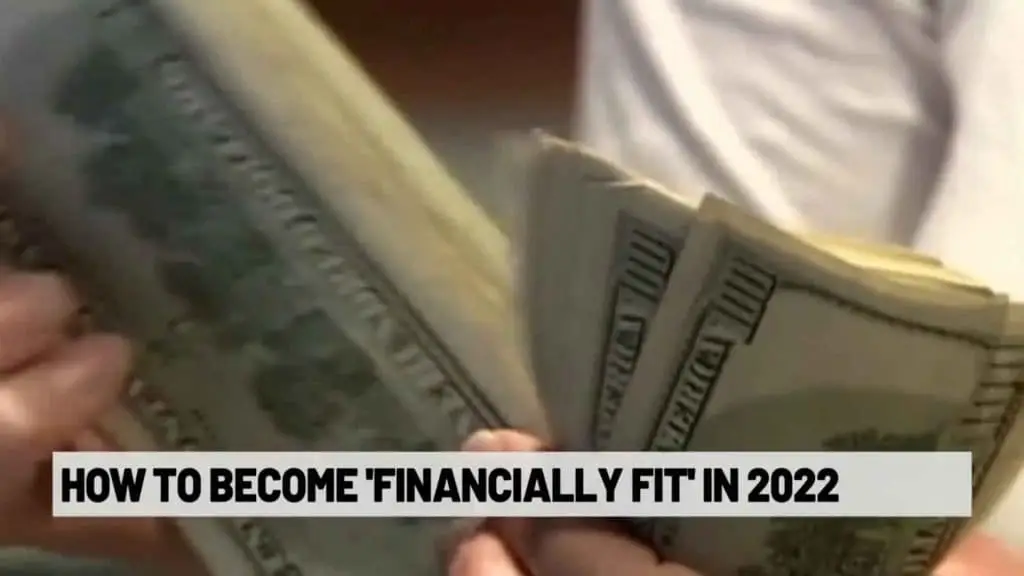
PA LIVE – March 31, 2022 “Dealing With Rising Costs”
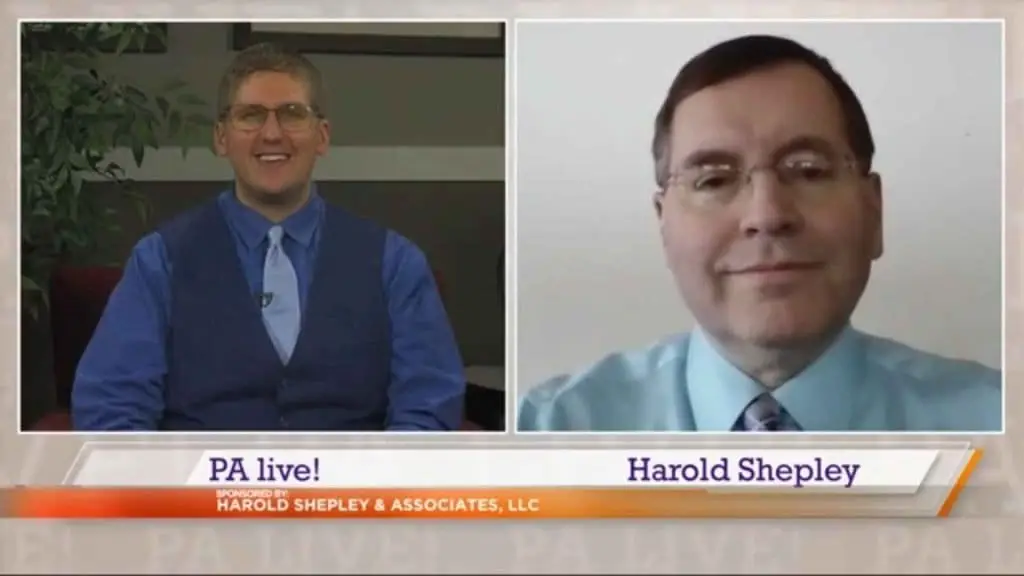
Tax Refunds
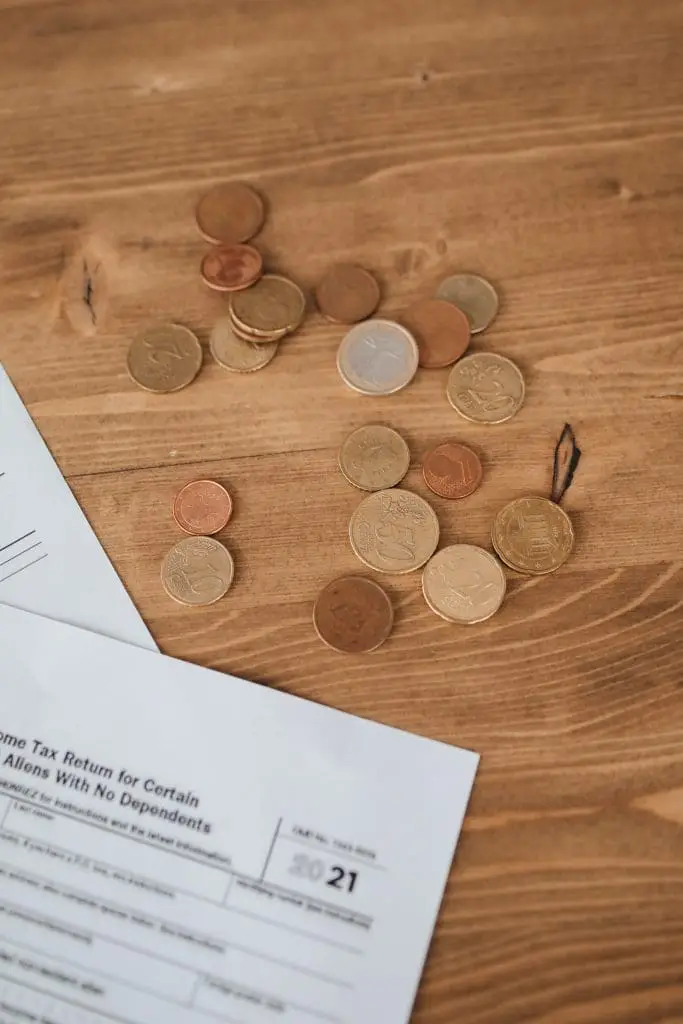
‘Tis the season for tax refunds! Other than Christmas, this may the season that most Americans look forward to during the course of the year. It is the time of year when many of us plod through the misery of preparing and filing our tax returns but get rewarded with tax refunds from the federal government. There is always the impulse to treat ourselves to something special, looking at the refund as “found money”, but if you are carrying any debt, you may want to think about strategies to use that refund to retire all, or part of, your debt. When thinking of using your tax refund to pay down debt, you will want to have a strategy in place to get the “most bang for your buck”. For example, if you have a credit card with a $10,000.00 balance and you receive a $1,000.00 tax refund, paying $1,000.00 on that balance isn’t really going to do much for you – your balance will only decrease by 10% and your monthly payment will not decrease by very much. Its like trying to put out a house fire with a squirt gun. However, if you if you have a credit card with a $1,000.00 balance and receive a $1,000.00 refund, you can pay-off the entire balance and eliminate that payment from your monthly budget. Better yet, you can leverage your refund to settle multiple accounts for less than what you may owe through negotiating settlements with your creditors. This strategy may not be for the faint of heart as it requires patience, multiple rounds of contact with creditors and an eye for detail to make sure you have a written agreement to evidence your settlement and getting monies paid to the correct address within a very limited time frame. At Harold Shepley & Associates, LLC we offer debt negotiation services that provide you the peace of mind of having attorneys handling your accounts and negotiating on your behalf to get you the best settlements possible.Another option, depending on your situation, may be bankruptcy. If your debt is so overwhelming that paying it off or negotiating settlements just won’t work for you, bankruptcy may be a very cost-effective option for you. For a one-time fee, you can file bankruptcy and, in most cases, retain the balance of your tax refund – you get rid of your debt and get to keep your tax refund! At Harold Shepley & Associates, LLC we can help you find a solution to your debt issues and put your tax refund to its best use. The call and the consultation are free. You have nothing to lose, but your debt!
PA LIVE – January 05, 2022 “Being Financially Fit in 2022″
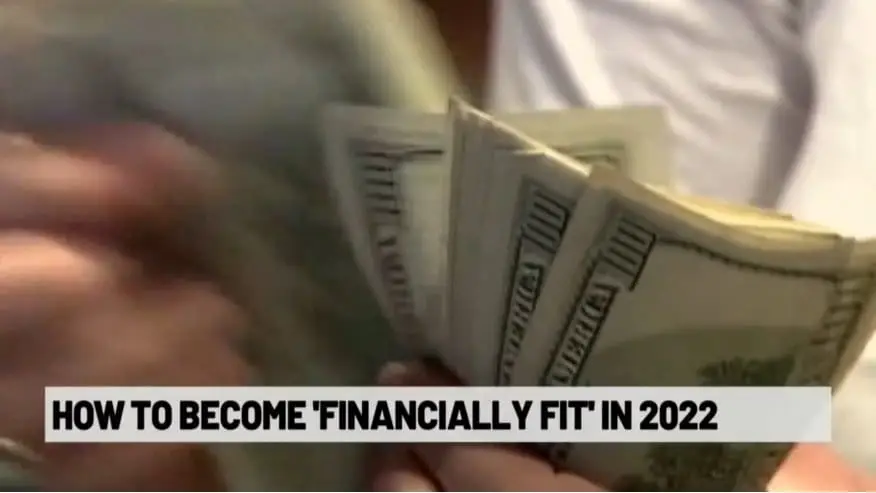
PA LIVE – January 03, 2022 “Tips for Becoming Debt Free in 2022″
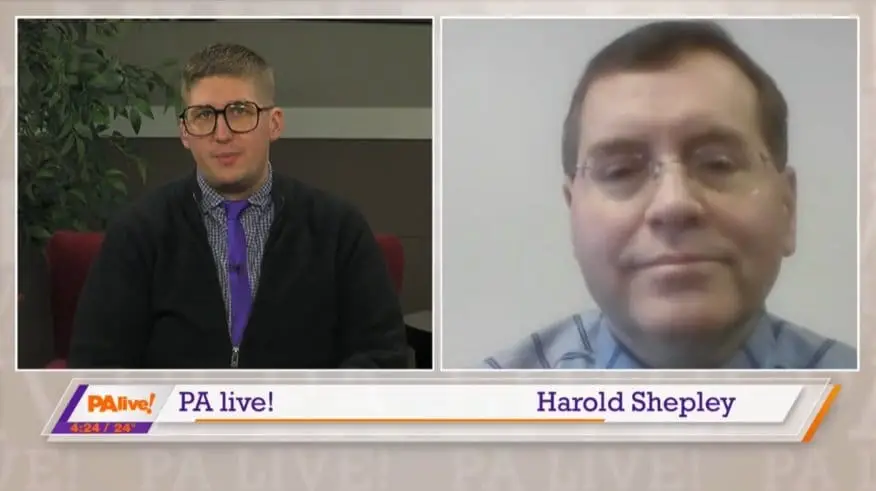
PA LIVE – November 24, 2021 “Holiday Spending Trap”

PA LIVE – November 10, 2021 “Mortgage Deferment”
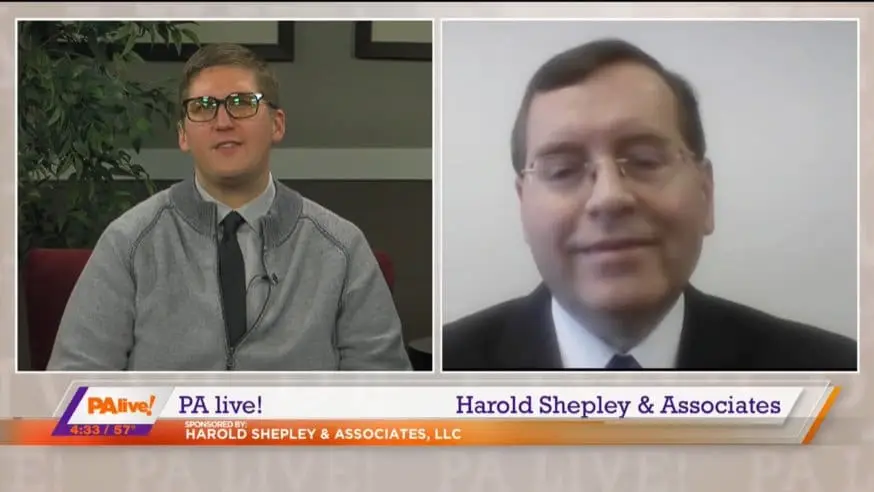
PA LIVE – August 31, 2021 “What to expect when calling our office.”
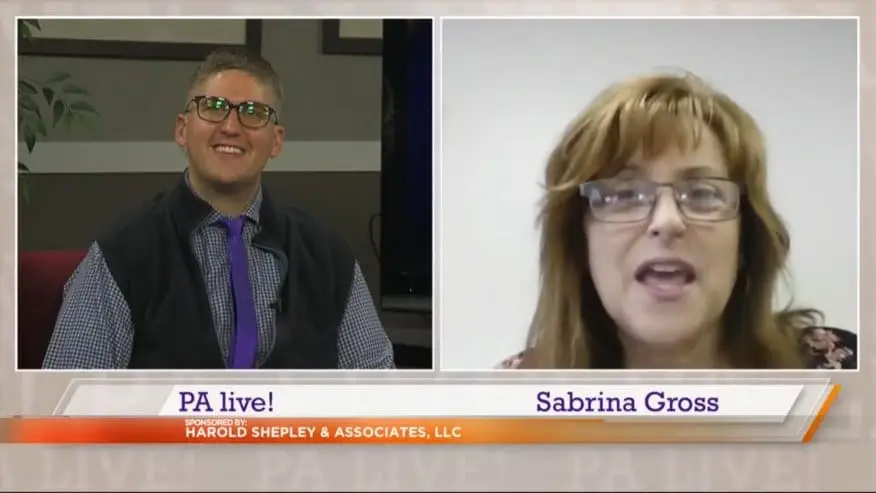
PA LIVE – July 28, 2021 “If I file bankruptcy, can I keep my stuff?”
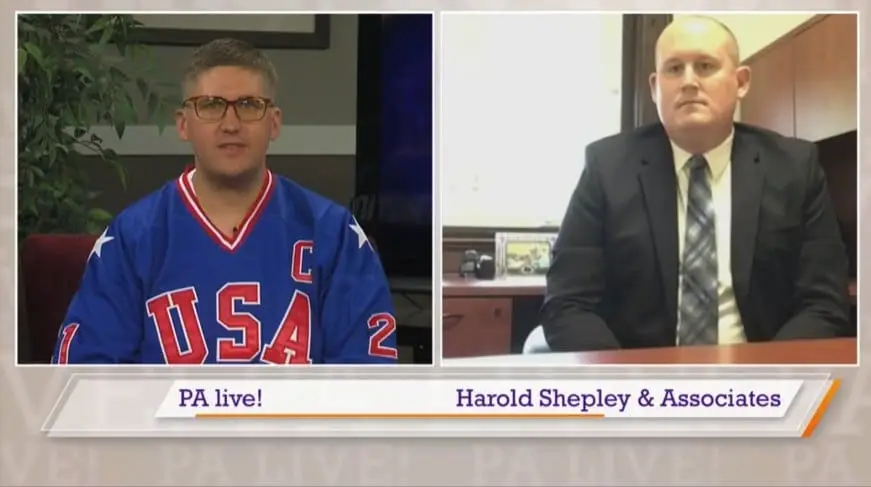
PA LIVE – May 31, 2021 “What are my Debt Options”
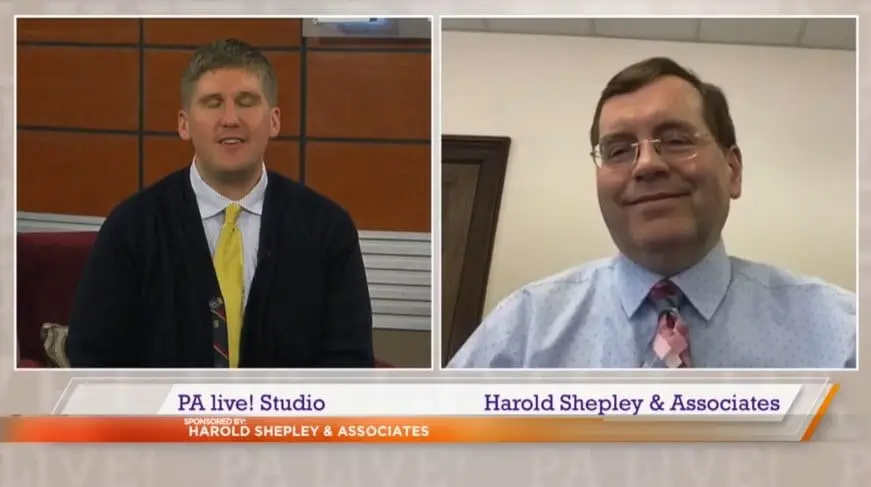
PA LIVE – June 28, 2021 “Voluntary Payment Plans: Pros and Cons”
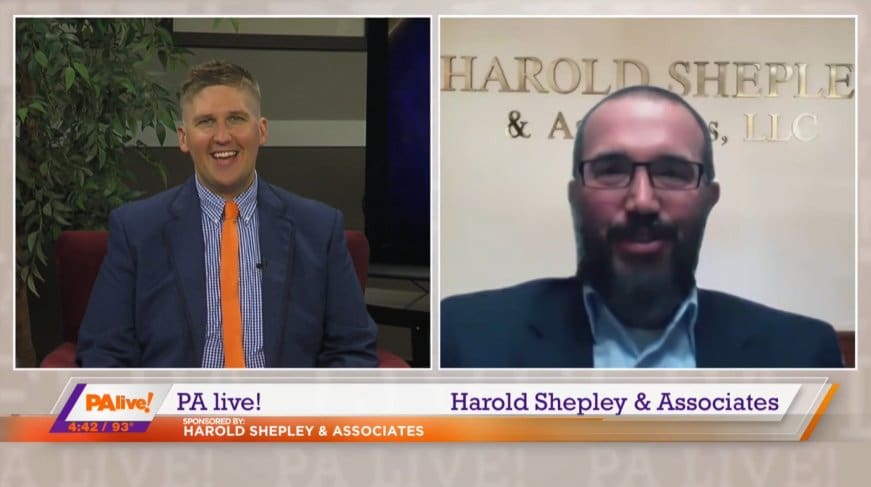
Entering a Voluntary Payment Plan with Your Creditor After Being Served with a Lawsuit May Not Be Your Best Solution

The pandemic has caused financial turmoil for many people. Many Pennsylvanians find themselves behind on payments whether it be on their credit cards, personal loans, medical bills, or with their mortgage company. As Pennsylvania re-opens and recovers from the pandemic, creditors will continue collection efforts to take advantage of consumers who have found themselves hurting financially. Individual saving has reached an all-time high, but that does not mean an individual should use that money to enter a voluntary payment plan with the creditor. https://www.wsj.com/articles/americans-are-saving-more-but-how-long-can-it-last-11591272180 Gas prices are on the rise and the cost of goods are increasing and that money may be needed for necessities in the future. Creditors are trying to capitalize on the government economic impact payments or commonly referred to as stimulus payments. Their hope is that their continued collection efforts lead to you, the consumer, entering a payment plan with them. The creditor may continue to call you, send letters, or do anything else possible to get you to contact them. The last step they take is filing the lawsuit against you. Many people get served with this lawsuit and call the creditor to enter a voluntary payment plan. These payment plans typically are for a small dollar amount per month for a large number of months until the amount owed is paid in full. For instance, someone allegedly owes $6,000 dollars to their credit card company. They receive a lawsuit seeking to recover that amount of money. A consumer calls the credit card company and says they can make $100 a month payments. The credit card company says that is fine we will secure the settlement amount with a consent judgment, and you can make your $100 dollar a month payment until the $6,000 dollars is paid in full. Many consumers are happy to take care of the immediate problem by only paying $100 a month. The consumer does not realize they will be making that payment as part of their monthly budget for five years! Should something happen in that time frame and a payment is missed, then the creditor will have a judgment against the consumer. This judgment could lead to attempting to garnish a bank account and/or seizing the individual’s assets as well as having a lien against any property owned. Voluntary payments to creditors seem like a good solution. However, they are only a short-term solution. Consumers usually end up paying back a lot more than they should. If you hire Harold Shepley & Associates, then you have experienced attorneys to effectively handle your financial situation. We work to obtain the best deal possible for you and save you a significant amount of money. Most importantly, we offer a long-term solution to a consumer’s financial situation in a time frame that works for the consumer. If you find yourself needing help financially, call Harold Shepley & Associates. We can evaluate your circumstances and advise you on the best course of action to save you the most money to help you reach a long-term solution. Call our office today for a FREE consultation at 1-877-827-9006. The information provided in this article does not, and is not intended to, constitute legal advice; instead, all information, content and materials available in this article are for general information purposes only. No attorney-client relationship is established between the reader, user or browser and the website owner, author contributors, or respective law firm employees by using, viewing, browsing, or clicking on the link to this article or related links.
Job Loss Does Not Mean You Will Lose Your Home – If You Plan Carefully

Losing your job after years of employment and enjoying a steady paycheck is a shock to anyone. Unemployment compensation does not replace the regular paychecks you previously received. This may be the very situation workers at the US Foods facility in Altoona, Pennsylvania will experience with reports that its warehouse operations will soon close. When a sudden change in employment and income occurs, many people do not consider that an immediate change to the household budget is required. It is critical to place the immediate needs of the family and purchases of the absolute necessary items at the highest priority to prepare the family until new, replacement employment can be found. Unnecessary household purchases must stop, and cash must be saved for emergencies to stretch the household budget as far as possible. Mortgage payments, automobile payments, insurance and utilities are key expenses that you must consider when preparing a new budget and recovering from a loss of employment. In some cases, you may need to choose between paying for the necessities to maintain a residence and meet the needs of your family or pay credit card bills, medical debts, and other similar expenses. If you simply cannot afford to pay for the necessities and provide some payment to the credit card companies or medical providers each month, then bankruptcy relief can be an option. Bankruptcy relief is an option that many people fail to consider as they plan and develop a new budget following a loss of employment. The benefits that bankruptcy provides should not be overlooked. Contact Harold Shepley & Associates before you decide to invade your savings accounts and retirement accounts. Every family faces unique circumstances and planning to use bankruptcy relief can be complicated. Harold Shepley & Associates can help you evaluate your circumstances and advise you if bankruptcy relief can help you reach your goals. Call our office today at 1-877-827-9006. The consultation is FREE. The information provided in this article does not, and is not intended to, constitute legal advice; instead, all information, content, and materials available in this article are for general informational purposes only. No attorney-client relationship is established between the reader, user or browser and the website owner, author, contributors, or respective law firm employees by using, viewing, browsing, or clicking on the link to this article or related links. This website and article may contain links to other third-party websites. Such links are for the convenience of the reader, user, or browser; Harold Shepley & Associates, LLC its members and staff do not recommend or endorse the contents of the third-party sites. Readers of this article should contact legal counsel to obtain advice with respect to any legal matter in their respective jurisdiction. We are a debt relief agency. We help people file for bankruptcy relief under the Bankruptcy Code.
How to Avoid Bankruptcy

It’s Not Too Late! The best way to avoid bankruptcy is with good money management, setting a budget and simply not spending more than you earn. Of course, we realize you are probably reading this article because you are already at a point of desperation. Perhaps our title should be: How to Avoid Bankruptcy When I’m Already in Trouble? You Can Avoid Bankruptcy with Several Steps When you are delinquent on your accounts, it is usually due to negative cash flow. You are spending more than you are making. There are a few basic remedies: Make more money Reduce expenses Try a mix of both For those who are able, avoiding bankruptcy may entail getting a second job as well as reducing expenses. We know it’s not easy. Reducing expenses can be difficult. Start by separating your wants from your needs. It is easy to point out vices like cigarettes, alcohol, and gambling. The harder part is when you need to cancel your cable or internet. Often you need to determine just how desperate your situation has become and decide whether something that once was a “need” is now simply a “want.” Losing cable and internet services is one thing, but what about your second vehicle? It may be a great convenience, but when push comes to shove can you and your spouse survive with just one vehicle? Avoid Solutions that Dig Debt Deeper Sometimes people avoid bankruptcy by taking a loan against their 401k or IRA. This seems like a good solution at the time, but this quick fix rarely works and often places people in an even more desperate situation. The problem is simple math. You couldn’t make ends meet with your previous take home income. Even though the cash withdrawal provided immediate relief, the long-term effects are quite harmful. Once the withdrawal is made you need to pay back the loan which means that you get less money with each pay. This places you in a situation where you once again need to borrow against your retirement. It is a vicious circle that you want to avoid. Debt Settlement and Professional Debt Negotiation While there is no escaping the hard choices that come with reducing expenses and good money management, there is a fast and effective way to help you get out of debt without filing bankruptcy. This is debt negotiation, also called debt settlement. The goal is to get you out of debt in a few years while paying back about half of what you owe. This is accomplished by having a professional negotiator acting on your behalf who eliminates the harassing calls and sets up a payment plan significantly lower than your regular monthly payments. While your credit does take a hit at the beginning of the program, most people watch their credit rise back up by the end of the program to a point where they can get a house or a car at a decent interest rate. Learn more on our Debt Negotiation page. You can take charge of your financial future and get out of debt while avoiding bankruptcy. It just takes a little help from the legal professionals at Harold Shepley & Associates, LLC. Find out what options are available for you. Call us today at 877-827-9006, or complete our easy to use Contact form. We’re ready to help.
So, You have Received a Collection Letter

Hearing from a Collection Agency Receiving a letter from a collection agency or attorney can be very intimidating. A collection letter may be written in a very friendly manner — ”Welcome to ABC Collections, we look forward to serving you and helping you determine which option works best for you to manage your debt.” Collection notices can be very threatening — ”If you do not pay the balance in full within thirty days, we will file a lawsuit to collect the debt from you.” Whichever one you receive (and you may receive both types), the goal for the collector is the same: to get a payment from you. The placement of a debt with a collection agency or servicer means that your primary creditor has exhausted their in-house attempts to collect the debt. Before the collection agency became involved, those efforts usually started with multiple letters and phone calls. Once your creditor decides that their attempts will not yield payment, they either sell your account to a third-party collector, or hire a debt collector to make further attempts at collection. Collectors can be companies or attorneys. As collectors, they must all follow the Fair Debt Collection Practices Act (FDCPA) and the Pennsylvania Fair Credit Extension Uniformity Act (PFCEUA). These laws protect consumers from over burdensome debt collection actions, such as telephone calls after 9 pm, threats to take any action they cannot legally take to collect a debt, falsely identifying themselves as a government agent, or communication via postcard. It also forces any attorney or company to identify themselves as a debt collector either orally during a telephone call or in writing in any written communication. Can a Collection Letter Lead to a Lawsuit? Receiving a collection letter can be considered the first step in the collection process that could lead to a lawsuit being filed against you to collect the debt. A collection agency from whom you have received a letter will typically turn the file over to an attorney if they are unable to acquire a payment. The attorney may send their own collection letter in an attempt to get payment before filing a lawsuit. These letters must also comply with the FDCPA and PFCEUA regulations concerning debt collection. Once a lawsuit is filed against you to collect a debt, your options become limited as to how to deal with the debt. You can learn more by reading our article Served with a Lawsuit? If you receive a collection letter, please don’t ignore it. The problem will not go away! This letter may be the first sign that you are not able to manage your current debt. Many people receive a collection letter and call the collector to make payment arrangements that they cannot afford. If you are unable to pay the debt for any reason, you should consider debt negotiation or bankruptcy. Find out what options are available for you. Call us today at 877-827-9006, or complete our easy to use Contact form. We’re ready to help.
Should a Christian File for Bankruptcy?

God and Debt. Is There a Christian Debt Solution? There is a belief “out there” that people in debt are bad, irresponsible, ignorant, stupid, or uncaring people. Many of those who hold this belief are the debtors themselves. Every day, we talk with people that are embarrassed and ashamed. They feel like they have let their families, their friends, and society down. They feel like they have failed, and that they will never recover. Unfortunately, these feelings often delay the help they truly need. These feelings of debt and of wondering if it is a sin to be in debt, keep them trapped in a reality that tortures them daily. It affects their relationships and can often cause marital distress leading to divorce. These fears, false evidence appearing to be real, cause unnecessary stress that can easily be remedied by seeking a solution. These false assumptions come from a variety of areas. The biggest hurdle people must overcome is that they are not the only person to ever be in debt. We tell our clients that at least half of their friends and family members have filed bankruptcy in the past. They just don’t know. In this social media world, everyone wants to share their triumphs and rarely their disappointments. At Harold Shepley & Associates, LLC, we are Pennsylvania Bankruptcy Lawyers with a Christian perspective. Learn more by visiting our Bankruptcy page. Debt Forgiveness has Biblical Roots There is also the thought that they have let God down and are somehow beyond redemption. If they only knew that bankruptcy had its roots within the Jewish heritage, then maybe they wouldn’t feel quite as bad. Back when Jesus walked the earth, the Jewish people celebrated the Festival of Jubilee every 7 years. All debts were forgiven between one person of Jewish faith and another person of Jewish faith. The idea is that God doesn’t want you to be held captive by debt or anything else. The fact is that we make bad decisions every day that affect our relationships with God and the people around us. God is willing to forgive these sins if we simply ask for forgiveness. You see, God is more interested in His relationship with you than any false front that you may portray. He has even offered the Festival of Jubilee in the past and now offers debt negotiation or bankruptcy in the present to deal with debt. The choice to escape debt is up to you. Isn’t it time that you stepped out of your problem and into a solution? Harold Shepley & Associates, LLC can help get your financial world back on track. Call us today at 877-827-9006 or schedule a FREE consultation online. We’re here to help.
Credit Report Errors
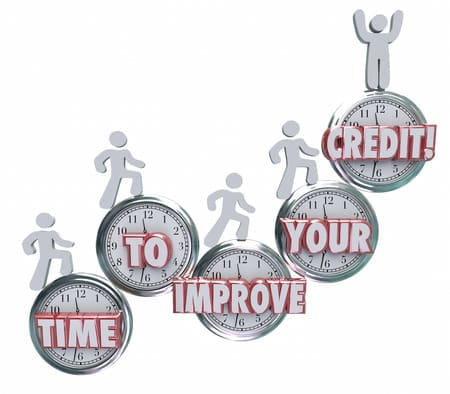
How Your Credit Report Affects Your Life Your credit report has so much more to do with your life now than it used to. For good or bad, your credit score can influence the rates of loans you are offered, security clearances, job applications, and even the cost of car insurance. It’s more important than ever to keep an eye on your credit report for: Inaccurate information Obsolete information Outdated information Unverifiable information According to the FACT ACT you are entitled to a free credit report once every 12 months. You can order your report via phone, mail, or online by simply going to Annual Credit Report.com. Fixing Credit Report Errors Once you receive your credit report, look it over carefully for mistakes and file a dispute if you find incorrect information. The agencies will provide the information you need to file a dispute based on how you got your report. You can dispute it online, or if you ordered it via mail or phone, they will send a dispute form along with your credit report. You can also hire a professional company to do it for you; just be sure any firm you hire adheres to Credit Repair Organization Act before you start any kind of credit restoration. Remember – credit agencies are private companies and not government entities as many presume. The agencies make their money buying and selling your information. The information they get is provided to them via: Creditors Loans you have obtained Public records Credit applications you have filled out There have been numerous news articles about the high percentage of Americans that have legitimate errors on their reports, and those numbers are alarming. It would be most wise to take the time to order your report – or at least sign up for one of the several free monitoring services that are available online, like Credit Karma. Monitoring your credit report, keeping it accurate, and working to build a good credit score can help you succeed in life. Start by getting your credit report and follow up if you see any problems. Do it today! Why Choose Harold Shepley and Associates, LLC? At Harold Shepley and Associates, LLC, we have the experience to deal with debt situations of all kinds. We are a full service Law Firm that is client-oriented and will work hard to meet your personal financial needs. Call us today at 877-827-9006, or complete our easy to use contact form. We’re ready to help.
The Envelope System

Handling Household Expenses without Credit Cards Want to reduce your credit card debt? Try the Envelope System. Credit cards are easy to use, too easy! You swipe them, sign them, and forget them! Then you try to put those charges out of your mind until the credit card statement comes. When you open that bill and look at the interest, you realize you’ll be paying that purchase off for years, if not for decades! One of the oldest, most time-honored ways of reducing credit card debt is called the Envelope System or Envelope Method. It’s simply a hands-on system that keeps you accountable for what you spend. As the name implies, you assign an envelope to each item in your family’s budget. On the outside of the envelope, put the budget item name, the amount that you owe, and the due date. When you get paid, put the money in the envelope. When the bill comes due for that item, pull the money out of the envelope and pay it. An Example of the Envelope Method How it works: You get paid twice a month and have a budget of $500/month for groceries. On your envelope, write “Groceries – $250.” From your first pay, you would put $250 in the envelope. The money in this envelope goes for groceries only. When you go to the grocery store, take the envelope with you. You spend no more than the money inside of the envelope. If there is more than $250 worth of groceries in your cart, things will have to go back. To stay in budget, you can purchase items on sale or off brand products. You will get to spend another $250 on groceries after your next pay. Use the Envelope System for “everything” in your budget, such as: groceries, phone, restaurants, entertainment, gas, clothing, insurance, taxes, etc. When your money runs out, there is no more money to spend until the next month. Don’t cheat and borrow from other envelopes. If you have money left over in an envelope, put it in an emergency fund envelope for a “rainy day.” If you find that your monthly income is not enough to cover all of the envelopes, you will need to cut back on things. Spending more money than you make is the surest way to find yourself deeper and deeper in debt. Until you can increase your income, you may need to be very careful about your purchases, even look for lower cost housing and transportation if necessary. Credit cards are a great convenience, but they also create a situation where it is far too easy to spend money that you do not have. The Envelope System brings you back to reality, where you budget realistically for the things you need and save for the things you want. Why Choose Harold Shepley and Associates, LLC? At Harold Shepley and Associates, LLC, we have the experience to deal with debt situations of all kinds. We are a full service Law Firm that is client-oriented and will work hard to meet your personal financial needs. Call us today at 877-827-9006, or complete our easy to use contact form. We’re ready to help.
Top 10 ways to Budget for Holiday Spending

Smart Ways to Budget for Christmas The holidays are almost here! You’ve been busy all year, and now your pre-holiday panic is starting to set in. It’s time to buy gifts, plan parties, and even travel back home to be with family. What will it all cost? A happy holiday season starts with a smart budget and using a creative mindset to avoid being caught in credit card debt that will last for years. Here are a few great Holiday Spending tips: 1. Determine what you can afford to spend. Look over your finances, and determine how much you can afford to spend on gifts and other expenses this holiday season. Set this figure as your overall holiday spending limit. 2. Set a spending limit for each area of your holiday budget. Run through your list of holiday expenses (gifts, decorations, holiday food, etc.) Set a budget for each area of spending. 3. Track your spending throughout the season. Keep a running total of your purchases on a worksheet. Don’t panic if you overspend in a category, just scale back your spending in another category to make up for it. 4. Make a list whenever you go Christmas shopping. Make a list and check it twice. Don’t leave home without it. 5. Use coupons and discounts, but only for the things you need. Coupons are a great way to save money but only for the things on your list. You are not saving money when you buy things not on your list – even with coupons. 6. Don’t forget homemade gifts. Most people will not only understand your efforts to avoid debt, they will admire your efforts. Believe it – they would rather have your great home-baked brownies over $20.00 worth of fancy soaps. You’ll find over 1,000 handmade gift ideas on Pinterest alone! 7. Make a list of every person you will be buying for. Get a box of envelopes. Create an envelope for everyone on your list, with a name and dollar amount on the envelope and the cash inside. This is a great way to keep your Christmas spending under control. 8. If you can’t afford to pay cash, DON’T BUY IT! There is no reason you need to go into debt to provide a gift for someone, no matter how much you love them. Credit card debt is frightening, because the interest compounds monthly. That means that if you make the minimum payments, it could take 30+ years to pay off your Christmas purchases! 9. Set up a Christmas savings club. Talk to your bank or employer about starting a Christmas Savings Club. Putting in as little as five dollars a week adds up quickly when buying for the holidays. You’ll feel so much better paying with cash you saved than a credit card that will haunt you for years! Be smart, stick to your budget and avoid credit card debt. One of the best presents you can give yourself this Christmas is to arrive in the New Year DEBT FREE! Why Choose Harold Shepley and Associates, LLC?
Are You Dependent on Credit Cards?

How do you know if you have developed an unhealthy dependency on your credit cards? Do you find yourself… Saying things will get better next month. Catching up on your bills with your bonus from work. Using your tax return to pay off bills. Day dreaming that your credit cards will be paid off someday. In our electronic age, credit cards can be a great convenience. They allow you to shop and even purchase big ticket items without carrying around a money-belt full of cash. Credit cards allow you to buy online and receive your purchase at your doorstep within days. Credit cards, however, are not a good way to finance your lifestyle. Do you find yourself using your credit cards every month to buy basic necessities like groceries and gas or to pay your utilities? Do you see your minimum payments increase because you cannot stop using your credit cards? Are you continually searching for cards with 0% interest so that you can do a balance transfer with a lower monthly payment, only to do another balance transfer six months later? Are you caught in one of these vicious cycles? Credit Card Debt Leads to Bad Credit If you are reading this saying “Yes, this is me!,” then it’s time to get help. Credit card debt can quickly become overwhelming, piling up out-of-control, leading to a bad credit score and damaging your financial future. Harold Shepley and Associates can Help Harold Shepley & Associates, LLC can provide you with the financial freedom you are looking for. With our Debt Negotiation Program, we can settle your credit card debt while providing you with an affordable monthly payment. Imagine being able to buy groceries and gas without having to use your credit cards!
How to Find a Good Debt Relief Attorney

How to Find a Good Debt Relief Attorney Finding a good debt relief attorney is the most important step you can take in achieving freedom from overwhelming debt. Focus your efforts on finding a lawyer who deals with your specific issue and one that will be there for you, helping you through the whole process from start to finish. Communication is also very important when looking for an attorney. You want to find one that returns your calls. Pay particular attention to the chemistry between you and the lawyer you are considering. If you feel uncomfortable with that person during your first few meetings, you may never achieve an ideal lawyer-client relationship. Trust your instincts. What Type of Attorney do I Need? You want to find a debt attorney who has specialized expertise in this area and experience with bankruptcy. It is also a good idea to find an attorney familiar with the courts and laws of the area in which you live. This will enable the attorney to represent your best interests. Contact the Bar Association Your state bar association keeps public records about complaints and disciplinary actions taken against attorneys licensed to practice in the state. You can visit the Lawyer Referral Directory of the American Bar Association to being your search for an experienced debt attorney in your state. Also review online directories of attorneys that offer free reviews, including but not limited to AVVO.com and LawyerRatingz.com. Get Recommendations from your Family, Friends & Employer Talk to friends, family members, and people in your community who have used an attorney. Find out who they hired and what type of service they offer, and if they were happy with the services provided. Another resource is your employer. Ask if your employer offers discounted legal services through either a specialized program or an EAP (Employer Assistance Program). For example, if your EAP offers a free 30-minute legal consultation, you can use that time to figure out if bankruptcy or debt negotiation makes sense for your situation. Make a list of potential attorneys that practice in or around your location. This will help you eliminate some attorneys and choose others that might be right for you. Review Each Attorney’s Website You will want to check for specific information on the practice areas of the attorney. Also look for background information such as his or her law school. Review each attorney’s website for general information about the type of legal issue you may need help with, including frequently asked questions or blogs with articles pertaining to your debt or legal issue. The best attorneys will maintain well developed websites offering informative content. Most attorney’s websites will provide information about each attorney working for the firm, including their educational background and work history. Typically, you should look for an attorney with at least 3 to 5 years of experience practicing the type of law with which you need help. Many attorneys may also use social media such as Twitter, LinkedIn, or Facebook. Check out these profiles as well. How an attorney conveys himself/herself to the public may help you get a sense of how well you would be able to work with them, as well as how comfortable you would be having the attorney assist you professionally with your needs. Harold Shepley and Associates can Help At Harold Shepley and Associates, LLC, we have experience dealing with personal debt. We are a full service law firm that is client-oriented and will work hard to meet your needs from debt negotiation to bankruptcy. Call us today at 877-827-9006, or complete our easy to use contact form. We’re ready to help!
Successful Savers & Investors

Successful Savers & Investors Saving money and investing takes time and persistence. You need to be in control of your personal debt and living within your means. It’s not easy, and you may feel overwhelmed. To have money in your budget each month for savings and investment goals takes an ongoing financial commitment. How do I make a Financial Commitment Stick? You need to set aside today’s money for your future goals. Successful savers think ahead. They don’t just live for today, but they plan for tomorrow. They put their income toward saving and investing goals that are important to them. Savings goals include: Major purchases, including car and home Your children’s education Retirement savings Emergency expenses Stick to your Savings Goals A key to successful saving and investing is being consistent. Stick to savings and investing month after month and year after year. Make saving a staple in your monthly budget and know that it is an essential part of meeting your future financial goals. Plan for Financial Emergencies Successful savers and investors know that financial emergencies happen. Your car may need repaired, the water heater may break, or an unexpected health crisis may occur. You need to set money aside so that you are not in a bind when unforeseen circumstances happen. A good rule to follow is to have three to six months of living expenses saved in an emergency fund. Having a few thousand dollars tucked away in a savings account can make a big difference if a large financial expense would occur. Pay Yourself First Before anything else, make sure money from your paycheck gets put aside for saving and investing. A good starting point is 10%. Depending on your income and other financial commitments some savers and investors are able to save 25% or more of their income. Get into a habit of saving first. Whenever your paycheck is cashed or deposited, move a chunk to a savings account and stick to it month after month. Also consider saving for retirement by joining an employer’s 401K plan and having pre-tax money set aside. Opening an individual retirement account is another good saving and investing option. Live Below your Means If you spend every penny you earn, you will not have the money to set aside for future goals or emergency situations. To be a successful saver, you must spend less than you earn on a consistent basis. The secret to living below your means is buying what you need and not what you want to have. In today’s society we often fall victim to the impulse buying influences in our lives. Retailers want you to believe that we cannot be happy without more stuff! To live below your means is to create a lifestyle you can pay for and have money left over. If you are spending more than you make, you will accumulate debt, making it more difficult to save. You also run the risk of damaging your credit if you overextend yourself on purchases and fall behind on your payments. Borrowing too much money can jeopardize what you could be putting aside for savings and future goals. Harold Shepley and Associates can Help At Harold Shepley and Associates, LLC, we have experience dealing with personal debt. We are a full service law firm that is client-oriented and will work hard to meet your needs from debt negotiation to bankruptcy. Call us today at 877-827-9006, or complete our easy to use contact form. We’re ready to help!
Debt Negotiation

Can I Keep My Home and Car? You were thrilled when you were able to negotiate and settle one of your credit When faced with mounting debt and life changing events like Bankruptcy, it is only natural to feel overwhelmed. What if you lose your car? Will they take away your home? The Debt Negotiation Program at Harold Shepley & Associates, LLC is specifically designed to not only keep you out of Bankruptcy, but also provide you with the peace-of-mind of being able to keep your home and your car. Debt Negotiation will settle your unsecured debt at 60% or less of the balance that you owe; therefore, allowing you to continue to make your monthly mortgage and car payments. How Will Debt Negotiation Benefit Me? Debt Negotiation will allow you to avoid filing for Bankruptcy. Our staff will stop the harassing creditor calls. We will provide you with ONE low monthly payment. You will become debt free in about 3 years. When you first call Harold Shepley & Associates, LLC, you will speak with a certified debt counselor.Our debt counselors will discuss your financial situation with you and come up with a payment plan that is affordable for you. The monthly payment for the Debt Negotiation program is usually significantly less than what you are paying your creditors now. We understand that this can be a very scary step to take and that is why we are with you every step of the way. The staff at Harold Shepley & Associates, LLC will answer all your questions and address all of your concerns. What You Have To Look Forward To After Debt Negotiation After working with us to successfully implement your debt management program, you will become: Financially free of all unsecured debt Living on a cash only basis Having a budget in place to remain debt free If your financial burdens are weighing you down and affecting your life, it is time for you to call Harold Shepley & Associates, LLC for your free consultation. Isn’t it time that you stepped out of your problem and into a solution? You have nothing to lose but your debt! Harold Shepley and Associates can Help At Harold Shepley and Associates, LLC, we have experience dealing with situations of both Debt Negotiation and Bankruptcy. We are a full service law firm that is client-oriented and will work hard to meet your personal needs in resolving debt. Call us today at 877-827-9006, or complete our easy to use contact form. We’re ready to help!
1099-C – Cancellation of Debt Notice
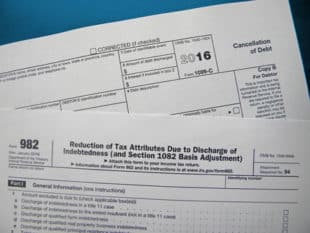
1099-C Cancellation of Debt Notice You were thrilled when you were able to negotiate and settle one of your credit card accounts for much less than the full balance. Your debt relief efforts were showing results! Unfortunately, that thrill turned to anxiety and indignation when you received a 1099-C Cancellation of Debt notice from your creditor during the next tax season. To the government, your forgiven debt is now taxable income! The IRS automatically views any amount of forgiven debt as taxable income, but there’s no immediate reason to panic. If you are able to show that you qualify for an exemption or an exclusion, as many do who are in your situation, you can often avoid paying taxes on this imputed income. It’s probably natural to feel that a 1099-C is somehow punitive. After all, if you couldn’t afford to pay the debt that triggered the form, how are you supposed to afford to pay taxes on the “income” the form represents? The 1099-C exists because many unscrupulous people over the years have found ways to use debt forgiveness to avoid paying taxes. Also, there is the general idea that if you don’t have to pay something that you legitimately owed, then you are receiving a financial benefit that should be taxable. Unfortunately, when the cancellation involves consumer debt, it invariably involves a balance significantly inflated by fees and interest charges, so the real financial benefit of the cancellation can be called into question. You might also question the motives of the creditor who issued the 1099-C, but this isn’t just a nasty, backhanded way for them to penalize you for settling the debt, and it’s also not something that can be negotiated away as part of the settlement process. In fact, the IRS has a list of circumstances that, when they occur, require the creditor to issue a 1099-C, and you may receive one in a variety of situations that do not directly involve settling a debt. How to Handle Your 1099-C and Taxable Debt No matter what, you can’t just ignore your 1099-C and hope nothing happens. First you need to examine it to make sure the information actually applies to you and, if so, that it’s accurate. It’s entirely possible that the creditor has made one or more mistakes that will need to be corrected. It is also possible that the 1099-C you receive will be dated for an event that happened in a prior year, or for the current year but after you have already filed your tax returns. In every instance you need to make sure to give your tax preparer a copy of the form. You should also confirm that they are familiar with cancellation of debt issues. While it depends on the specifics of each situation, seeking the exemption will often involve filing IRS Form 982 and completing the appropriate worksheets. If your particular tax preparer isn’t familiar with this process you should be able to find someone who is – millions of 1099-C’s have been issued in recent years and the need to deal with them has become much more common as a result. Finally, if you are someone who tries to save money by preparing your own taxes and you encounter an issue with a 1099-C, it’s important to realize that the details of this area can be somewhat complex and difficult to understand. It’s always better to seek professional help rather than deal with the potential consequences of mishandling your filing. Harold Shepley and Associates can Help At Harold Shepley and Associates, LLC, we have experience dealing with situations of personal and household debt every day. We are a full service law firm that is client-oriented and will work hard to meet your personal needs in resolving debt. Call us today at 877-827-9006, or complete our easy to use contact form. We’re ready to help. There is no reason financial stress should ruin your life. Talk to our debt relief specialists, the consultation is free. Call us today at 877-827-9006 or use our easy-to-complete contact form. Our attorneys will be delighted to speak with you.

